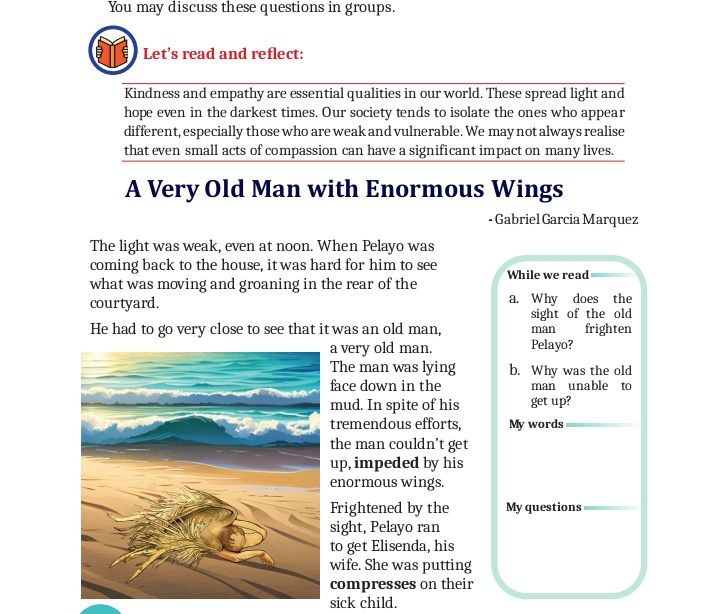Detailed Study Notes on Poetics by Aristotle
Aristotle’s Poetics is one of the earliest and most influential works of literary criticism. Written in the 4th century BCE, it primarily focuses on dramatic poetry, particularly tragedy, but also briefly discusses epic poetry and other literary forms. Aristotle’s observations on plot structure, character development, and emotional impact have shaped literary theory for centuries.
I. The Nature and Purpose of Poetry
A. Definition of Poetry
Aristotle defines poetry as mimesis (imitation).
Unlike history, which deals with actual events, poetry deals with what could or should happen.
Poetry is more philosophical than history because it presents universal truths rather than specific facts.
B. Origins of Poetry
According to Aristotle, poetry evolved due to two fundamental human instincts:
1. The instinct to imitate – Humans naturally enjoy imitating reality.
2. The instinct for rhythm and harmony – Humans find pleasure in structured sound and meter.
C. Types of Poetry
Aristotle classifies poetry based on the mode of imitation:
1. Epic Poetry – A long narrative work about heroic deeds, written in verse (e.g., The Iliad and The Odyssey).
2. Tragedy – A serious drama that aims to evoke pity and fear, leading to catharsis.
3. Comedy – A work that imitates low or ridiculous characters, leading to laughter.
4. Satyr Play – A mix of tragedy and comedy, often satirical.
5. Dithyrambic Poetry – Songs in honor of Dionysus, which contributed to the development of drama.
II. Definition and Components of Tragedy
A. Aristotle’s Definition of Tragedy
"Tragedy is an imitation of an action that is serious, complete, and of a certain magnitude; in language embellished with artistic ornament; in the form of action, not narrative; through pity and fear effecting the proper catharsis of these emotions."
This definition highlights six essential aspects:
1. Imitation (Mimesis) – Tragedy imitates life but elevates it to universal significance.
2. Serious and Complete Action – The story must have a beginning, middle, and end.
3. Magnitude – The subject must be important and significant.
4. Embellished Language – The use of poetic devices and artistic expression enhances the effect.
5. Form of Action – Tragedy is performed, not just told.
6. Catharsis – The audience experiences an emotional release through pity and fear.
III. The Six Elements of Tragedy
Aristotle identifies six elements that contribute to the success of a tragedy:
1. Plot (Mythos) – The Most Important Element
The sequence of events in the story.
Should be complete and unified (having a clear structure).
Must be probable and necessary, meaning events should logically follow each other.
Key Features of a Good Plot
Unity of Action – The story should focus on a single main action without unnecessary subplots.
Probability and Necessity – The events should be logically connected.
Complexity – A strong plot should contain:
Peripeteia (Reversal) – A sudden change in fortune.
Anagnorisis (Recognition) – The hero’s realization of truth.
Catastrophe (Suffering) – The hero’s downfall.
2. Character (Ethos)
The moral and psychological qualities of the characters.
The tragic hero should be:
Noble but flawed (hamartia – a tragic flaw).
Capable of making choices that lead to their downfall.
Neither purely good nor purely evil.
3. Thought (Dianoia)
The ideas, themes, and messages presented in the play.
The characters' speeches should express logical reasoning and moral insights.
4. Diction (Lexis)
The choice of language and style used in the play.
Must be appropriate to the characters and the situation.
5. Melody (Melos)
The musical elements of a tragedy, including choral songs and rhythm.
Aristotle considered music an important part of the theatrical experience.
6. Spectacle (Opsis)
The visual aspects of a play, such as scenery, costumes, and special effects.
Though important, Aristotle considers it the least significant element.
IV. The Tragic Hero and Hamartia
A. Characteristics of a Tragic Hero
A tragic hero must:
1. Be of noble birth or high status.
2. Possess hamartia – a flaw or error in judgment.
3. Experience peripeteia (a reversal of fortune).
4. Undergo anagnorisis (a moment of self-realization).
5. Evoke pity and fear in the audience.
B. The Role of Hamartia
Hamartia does not always mean a moral flaw; it can be ignorance, poor judgment, or fate.
Example: Oedipus in Oedipus Rex – His tragic flaw is both his pride and ignorance of his true identity.
V. Differences Between Tragedy and Epic Poetry
Aristotle considers tragedy superior because it has a more immediate emotional impact.
VI. Catharsis: The Emotional Impact of Tragedy
Definition: The process of purging emotions of pity and fear through the tragic experience.
Purpose: Helps the audience attain emotional balance.
Effect: Viewers leave the performance feeling cleansed and enlightened.
VII. The Role of the Chorus
* The Chorus acts as an observer, commentator, and moral guide.
* It provides background information and helps the audience interpret the action.
VIII. Aristotle’s Influence on Literary Criticism
Poetics shaped Western literature, influencing:
* Greek and Roman playwrights (Sophocles, Seneca).
* Renaissance drama (Shakespeare, Marlowe).
* Modern storytelling (film and literature).
His ideas about plot structure, character development, and catharsis remain relevant in contemporary drama and literature.
Conclusion
Aristotle’s Poetics provides a systematic analysis of drama, especially tragedy. His insights into plot, character, catharsis, and the tragic hero have shaped literary criticism for over 2,000 years. Even today, his principles influence modern storytelling, from plays to novels and films.




Comments
Post a Comment
Please share your feedback and questions